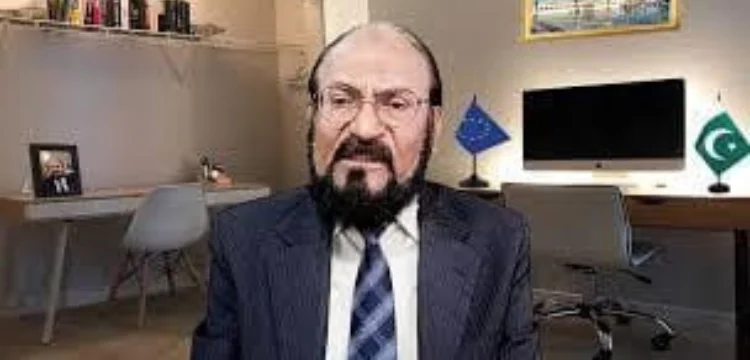In a recent discussion with The Neutral Pakistan, Muhammad Faisal, the renowned international mediator, analyst, and head of the World Peace Mission, issued a stark warning about the potential consequences of a US-Israeli military strike on Lebanon. Faisal predicts that such an action could ignite an unending war in the Middle East, with far-reaching implications for global stability.
Hezbollah and Hamas Alliance: A Dangerous Shift in Regional Dynamics
Faisal emphasized the growing alliance between Hezbollah and Hamas, describing it as a highly dangerous development. Both groups, known for their militant activities and opposition to Israel, have the potential to escalate the conflict significantly if Lebanon is attacked. This alliance could transform localized skirmishes into a broader, more destructive war that could engulf the entire region.
“The alliance between Hezbollah and Hamas is not just a threat to Israel but to the entire Middle East,” Faisal stated. “If war is imposed on Lebanon, it won’t remain confined to the region. The entire world will feel its tremors.”
European Unease: The Ripple Effects of Middle Eastern Conflict
The potential conflict has already sent shockwaves through Europe, with many nations expressing deep concern over the possibility of a prolonged war. The fear is that such a conflict could lead to a massive refugee crisis, economic disruptions, and increased terrorism risks across the continent.
“A wave of uneasiness has spread in Europe,” Faisal remarked. “The peace of the whole world is in danger. An endless war in the Middle East would have catastrophic effects not just locally but globally.”
Global Powers Align: Russia and China Respond to Escalating Tensions
The situation has also prompted major global powers to reconsider their strategies. Russia is swiftly adapting its war plans, potentially positioning itself as a significant player in any forthcoming conflict. Similarly, China is closely monitoring the developments, urging its neighboring countries to focus on bolstering their economies and defense mechanisms.
“It seems that all the major powers are lining up for a major clash,” Faisal observed. “Russia is rapidly determining its war strategy, while China wants its neighbors to strengthen their economic and defense strategies. This could lead to a major shift in global power dynamics.”
New World Order: BRICS as the Charter of Global Power Shift
Faisal further highlighted the emergence of a new world order, with the BRICS nations (Brazil, Russia, India, China, and South Africa) at its forefront. He views BRICS as the charter of this new global arrangement, indicating a significant shift in power from the West to Asia.
“The New World Order is speedily overtaking the old one,” Faisal stated. “The power of the world is rapidly shifting to Asia. BRICS represents the foundation of this new order, challenging the traditional dominance of Western powers.”
Strategic Realignments: Pakistan’s Role in the New Global Framework
In light of these developments, Faisal stressed the importance for Pakistan to realign its foreign policy according to the new global arrangements and emerging strategic defense alliances. He urged Pakistani leadership to recognize and adapt to these changes to ensure the country’s security and prosperity in an increasingly volatile world.
“Pakistan must rearrange its foreign policy to align with the new global realities,” Faisal advised. “By forming new strategic defense alliances, Pakistan can better navigate the shifting power structures and secure its place in the evolving global order.”
Conclusion
As tensions in the Middle East threaten to spiral into a broader conflict, the global community stands at a crossroads. The potential for an endless war looms large, with alliances being forged and strategies being revised. Muhammad Faisal’s insights underscore the urgency of understanding and addressing these geopolitical shifts. The world watches with bated breath as the future of international relations hangs in the balance.











